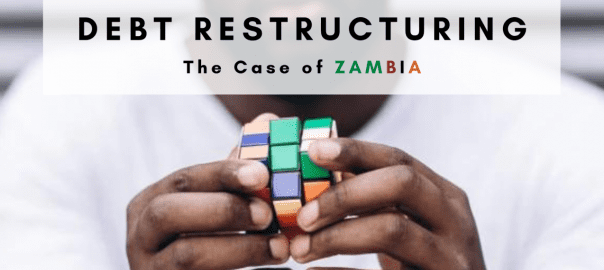Nov. 29, 2023 /IEconomy/ — Zambia is a country in southern Africa that has been struggling with a heavy debt burden for many years. In 2020, the country became the first African nation to default on its sovereign debt during the COVID-19 pandemic. In an effort to get its finances back on track, Zambia has been seeking to restructure its debt with its creditors.
In June 2023, Zambia reached a deal with its official creditors, including China, to restructure $6.3 billion in debt. However, this deal did not include Zambia’s private bondholders. In October 2023, Zambia reached a deal with its private bondholders to restructure $3 billion in debt. However, this deal was rejected by the Official Creditor Committee (OCC), which represents Zambia’s official creditors.
The impasse between Zambia and its creditors has raised concerns about the effectiveness of the Common Framework, a debt restructuring mechanism developed by the Group of 20 (G20) major economies. The Common Framework is intended to provide a more coordinated and streamlined approach to debt restructuring for countries in distress. However, the Zambian case has shown that the framework may not be up to the task of dealing with the complex debt situations of many low-income countries.
The impasse has also had a negative impact on Zambia’s economy. The country’s currency has depreciated sharply, and investors have been reluctant to provide new financing. As a result, Zambia’s economic recovery has been slow and uneven.
The Zambian debt restructuring impasse is a complex issue with no easy solutions. However, it is clear that the impasse is having a significant negative impact on Zambia and its people. The international community must work together to find a solution that is fair to all parties involved.
Here are some of the key points to keep in mind about the Zambian debt restructuring impasse:
- Zambia is a country in southern Africa that is struggling with a heavy debt burden.
- In 2020, Zambia became the first African nation to default on its sovereign debt.
- Zambia has been seeking to restructure its debt with its creditors.
- In June 2023, Zambia reached a deal with its official creditors to restructure $6.3 billion in debt.
- However, this deal did not include Zambia’s private bondholders.
- In October 2023, Zambia reached a deal with its private bondholders to restructure $3 billion in debt.
- However, this deal was rejected by the Official Creditor Committee (OCC).
- The impasse between Zambia and its creditors has raised concerns about the effectiveness of the Common Framework.
- The impasse has also had a negative impact on Zambia’s economy.
- The international community must work together to find a solution that is fair to all parties involved.
Here are some of the main points in summary
The Common Framework
In 2020, the Group of 20 (G20) major economies established the Common Framework (CF) to provide a coordinated approach to debt restructuring for low-income countries. The CF is intended to be a more streamlined and efficient process than the traditional Paris Club framework, which is focused on debt owed to official creditors.
Zambia’s Debt Restructuring Deal In June 2023, Zambia reached a debt restructuring deal with its official creditors, which include the United States, China, and other European countries. The deal involved a reduction of Zambia’s debt by about $6.3 billion.
The Impasse with Private Creditors However, Zambia has been unable to reach an agreement with its private creditors, which include asset managers and hedge funds. The private creditors are objecting to the terms of the deal with official creditors, arguing that they are not being treated fairly.
The Impact of the Impasse The impasse with private creditors has cast doubt on the effectiveness of the CF. It has also raised concerns about the future of debt restructuring in Africa.
The Zambian debt restructuring impasse is a complex issue with no easy solutions. The outcome of the impasse will have a significant impact on Zambia’s economy and could set a precedent for future debt restructurings in Africa.

